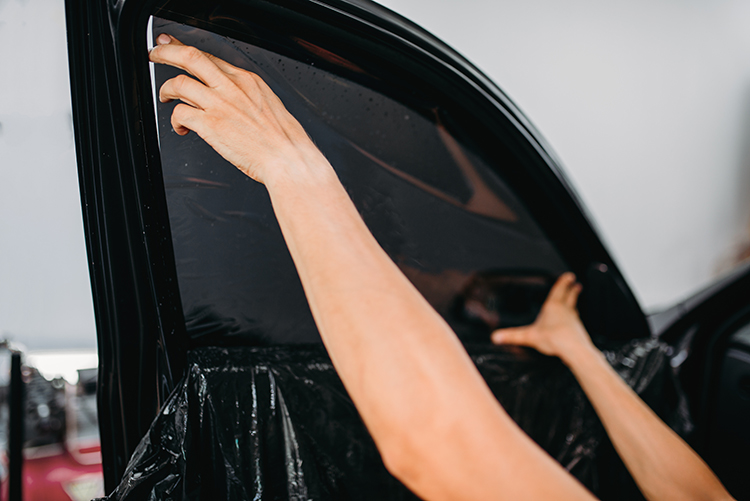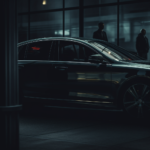
When it comes to how dark your vehicle’s windows can be, there are laws and regulations in place to ensure it isn’t too dark. Some dark window enthusiasts find these laws to be a drag, and many wonder why these laws exist at all. Today, we discuss three big reasons that there are laws against window tint being too dark. By the end of this article, car owners should have a better understanding of just how important these laws really are.
1. Reflected Glare is a Distraction
Along with how dark your window tint is, there is a certain amount of “reflection” taking place. This reflects sunlight away from your vehicle to reduce the amount of sunlight and heat which enters the vehicle.
When it reflects away the light, reflective tinting causes a glare. Within normal limits, this glare is only mildly annoying – if it’s perceivable at all. Too much glare can blind other drivers on the road, however, and has the potential to cause motor vehicle accidents.
2. Bad Visibility in Low Light
There are many times when people must drive in low light situations. A few prime examples are night, early morning, or late evening. When it’s raining or snowing, the light will also be low. Even an overcast day can make the amount of visible light significantly lower than a driver would normally expect.
When this happens, people with normal windows can still see what is happening outside the car. Those with tinted windows, however, will experience a more notable difference in the amount of visible light. This is because the window tint already causes a reduction in light inside the vehicle.
Window tint that is too dark can cause the interior and exterior of the vehicle to appear too dark for the average person to see clearly. Without proper vision while driving, drivers are at risk of causing accidents.
3. Safety of Law Enforcement
Window tint makes it difficult to see the interior of your vehicle. While legal window tints may obstruct most of what goes on inside a vehicle, they typically allow for viewing if someone comes close enough. They might also allow for shadows to be visible, even if details are not.
Law enforcement personnel who stop vehicles with windows that have been tinted too dark place themselves at risk. While you may know that you don’t pose law enforcement harm, this isn’t the case for everyone.
It isn’t only this, either. When law enforcement can clearly see inside your vehicle, it leaves no room for misunderstandings. This can save you a lot of hassle if you ever get pulled over for a moving vehicle violation.
The three reasons listed above are just the biggest reasons that laws exist to regulate how dark a vehicle’s window tint can be. Car owners should now have a better understanding on the importance of these laws, as they pertain to not only them, but everyone around them.






Comments are closed.